Sri Lanka is a beautiful island country, not only renowned for its sun-kissed beaches and tea plantations, but also for its diverse traditional festivals. The country is also referred to as the Pearl of the Indian Ocean and is home to Buddhist, Hindu, Christian, and Islamic religions.
So, whether you are going on a trip or simply exploring its diverse culture, understanding the basics about festivals in Sri Lanka will help you make a better and more memorable journey. This well-explained guide presents the top festivals in Sri Lanka, their definition, and how to celebrate them across the island.
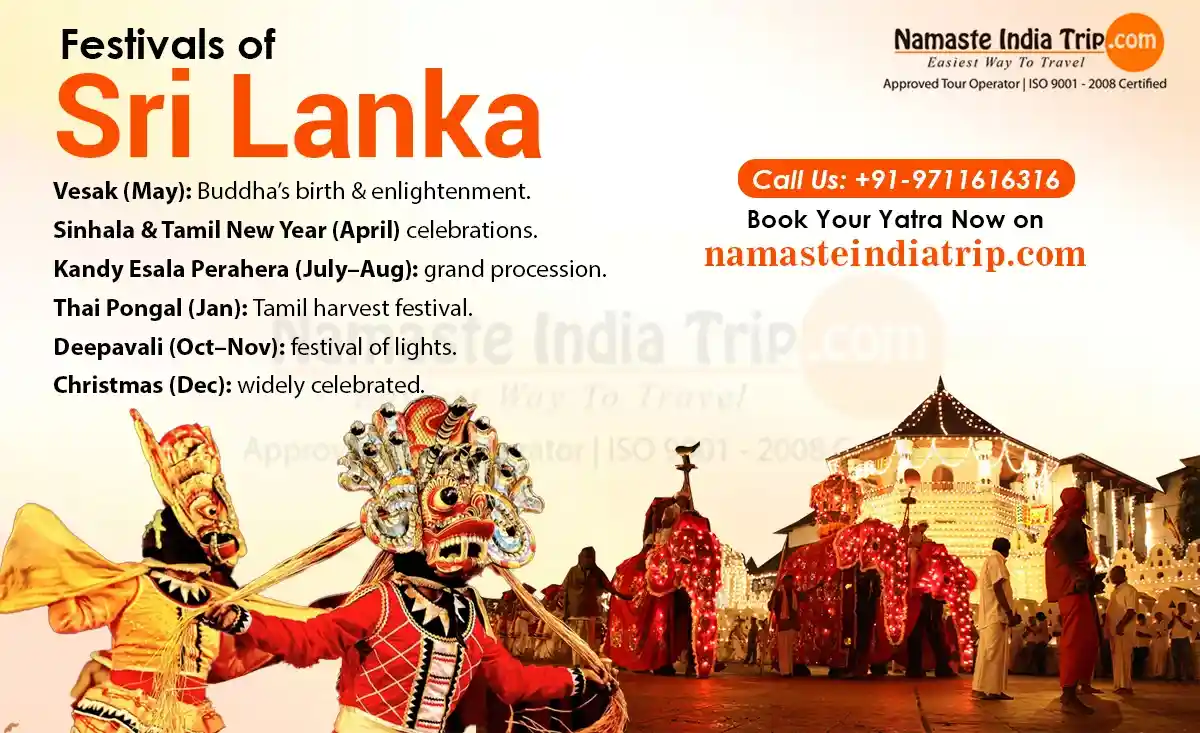
Top Festivals of Sri Lanka
1- Sinhala and Tamil New Year (Avurudu)

The Sinhala and Tamil New Year is celebrated in mid-April when the sun changes its zodiac signs to Aries. It is organized enthusiastically by Sinhalese Buddhists and Tamil Hindus. The festival is based on the ancient traditions of lighting the fire hearth at an auspicious moment, cooking milk rice (Kiribath) and giving away sweets and presents, playing customary games, such as pillow fight (Kotta Pora) and blowing up pots blindfolded (Kana Mutti). In simple words, we can say that Avurudu is a wonderful mixture of ritual, entertainment, and family unity that gives the whole island a celebration.
2- Vesak
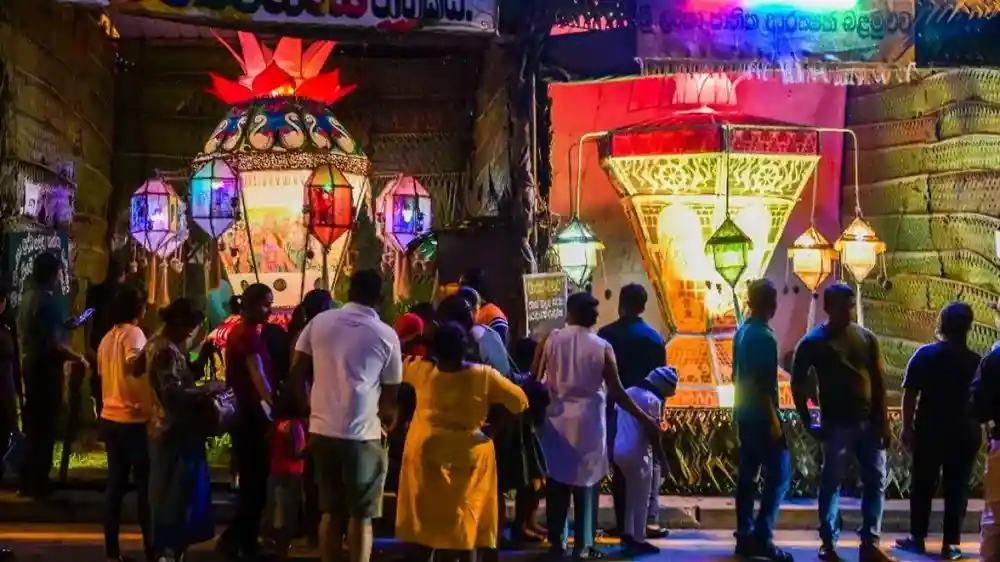 Vesak is one of the most important festivals celebrated by Buddhists in May on the full moon day. This auspicious day celebrates the birth of Lord Buddha, his enlightenment, and his death. The Vesak lanterns, delicate and skillfully cased Pandols (storyboards brightened by lights), and peaceful parades transform towns and villages into blazing masses of worship. The followers practice almsgiving, adorn local temples, and sing devotional music. The spiritual atmosphere of places like Kandy, Colombo, and Anuradhapura is something one should never miss.
Vesak is one of the most important festivals celebrated by Buddhists in May on the full moon day. This auspicious day celebrates the birth of Lord Buddha, his enlightenment, and his death. The Vesak lanterns, delicate and skillfully cased Pandols (storyboards brightened by lights), and peaceful parades transform towns and villages into blazing masses of worship. The followers practice almsgiving, adorn local temples, and sing devotional music. The spiritual atmosphere of places like Kandy, Colombo, and Anuradhapura is something one should never miss.
3- Esala Perahera (Kandy Perahera)
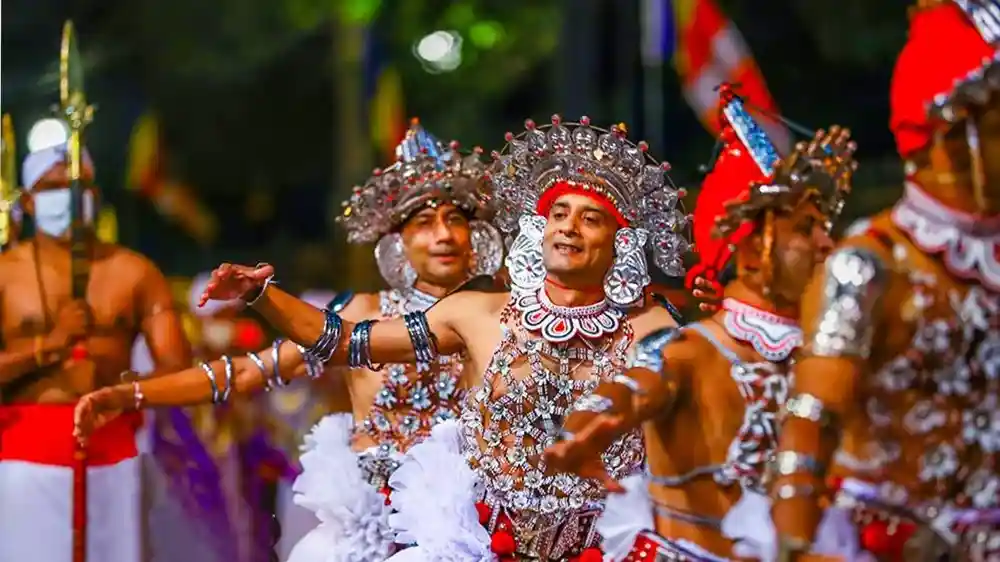 Esala Perahera is one of the most popular cultural festivals held in July or August in the old Kingdom of Kandy. It is celebrated in reverence for the sacred tooth relic of the Buddha, kept in the Temple of the Tooth. The festival is known for a parade of nicely decorated elephants, cultural dancers, music stations, and torch carriers. The religious rituals also involve Buddhist monks and Hindu priests, which shows interfaith harmony in Sri Lanka. More than 300,000 individuals visited Kandy during this epic festival in 2023 alone.
Esala Perahera is one of the most popular cultural festivals held in July or August in the old Kingdom of Kandy. It is celebrated in reverence for the sacred tooth relic of the Buddha, kept in the Temple of the Tooth. The festival is known for a parade of nicely decorated elephants, cultural dancers, music stations, and torch carriers. The religious rituals also involve Buddhist monks and Hindu priests, which shows interfaith harmony in Sri Lanka. More than 300,000 individuals visited Kandy during this epic festival in 2023 alone.
4- Thai Pongal
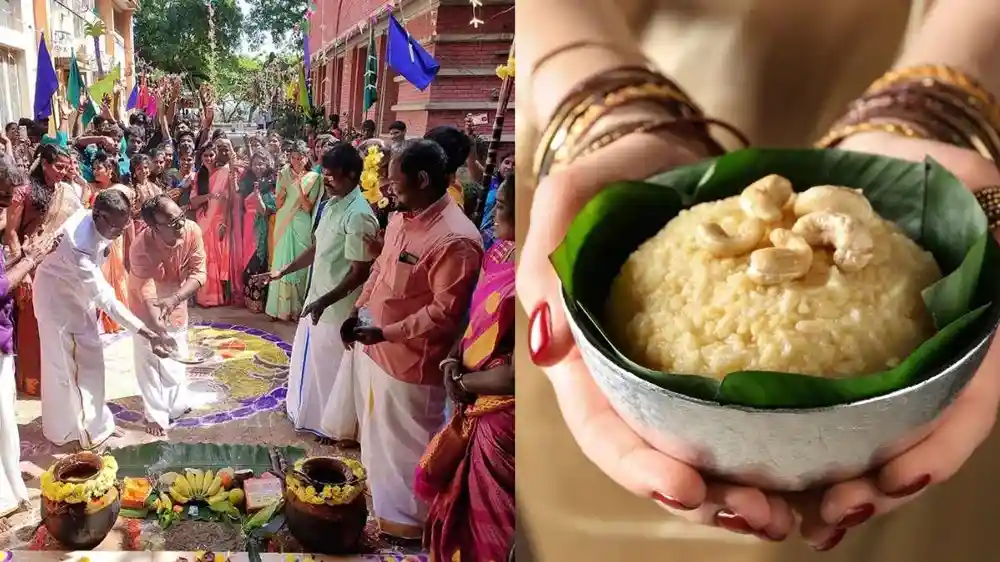 It is a crop festival celebrated with full joy and enthusiasm in the middle of January. It is mostly organized by the Tamil Hindu community, especially in the Northern and Eastern provinces. The festival is a thanksgiving to the Sun God (Surya) and the cattle that are important to agricultural life. In the morning, families cook a special dish called Pongal (sweet rice) in freshly cleaned clay pots, usually out in the sun. Houses are decorated with the elaborate design of Kolam, comprising rice flour, and the air is filled with traditional music of Tamil origin and cultural celebrations. It is a period of celebration, abundance, and communion among agricultural societies.
It is a crop festival celebrated with full joy and enthusiasm in the middle of January. It is mostly organized by the Tamil Hindu community, especially in the Northern and Eastern provinces. The festival is a thanksgiving to the Sun God (Surya) and the cattle that are important to agricultural life. In the morning, families cook a special dish called Pongal (sweet rice) in freshly cleaned clay pots, usually out in the sun. Houses are decorated with the elaborate design of Kolam, comprising rice flour, and the air is filled with traditional music of Tamil origin and cultural celebrations. It is a period of celebration, abundance, and communion among agricultural societies.
5- Deepavali (Diwali)
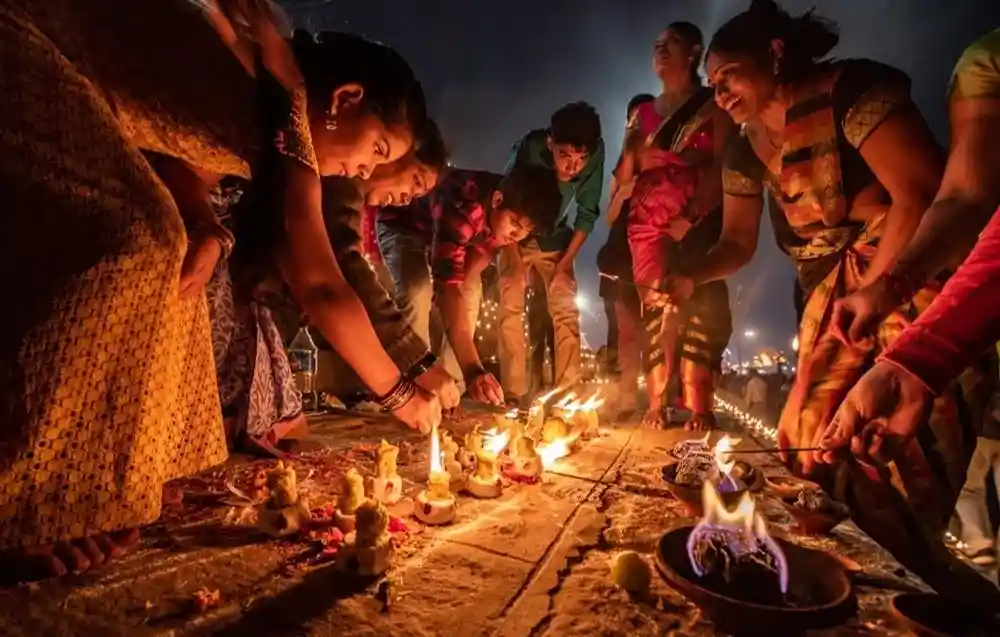 Deepavali is referred to as a Festival of Lights, and it is observed by Hindu Tamils in Sri Lanka during October or November. The festival represents the victory of the good over the evil and light over darkness. People celebrate the day by lighting oil lamps in their homes, displaying fireworks, and special puja taking place in Hindu temples. Families get united to eat cakes, share, and give gifts. In Sri Lanka, Deepavali is not only a religious celebration but also a festive time when families get together, tradition is displayed in lights, and in beautiful moments.
Deepavali is referred to as a Festival of Lights, and it is observed by Hindu Tamils in Sri Lanka during October or November. The festival represents the victory of the good over the evil and light over darkness. People celebrate the day by lighting oil lamps in their homes, displaying fireworks, and special puja taking place in Hindu temples. Families get united to eat cakes, share, and give gifts. In Sri Lanka, Deepavali is not only a religious celebration but also a festive time when families get together, tradition is displayed in lights, and in beautiful moments.
6- Christmas
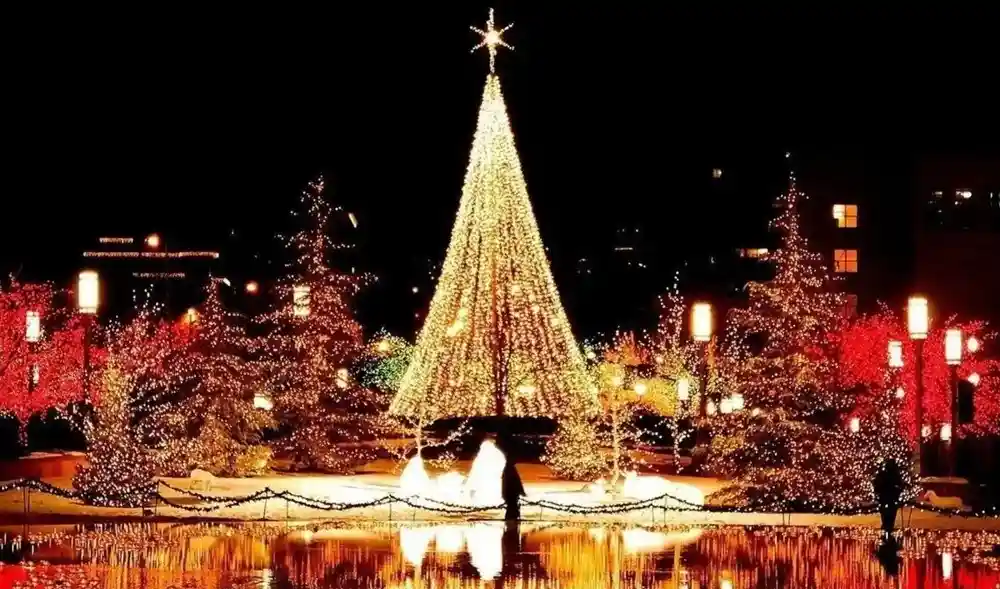 The Christians and non-Christians of Sri Lanka celebrate Christmas on December 25 with a lot of festivities and fun. Colombo, Negombo, and Galle are colorfully lit with tree decorations, nativity scenes, and Christmas trees. The festivity involves midnight Mass, carol singing, and special markets. Most families cook jubilant food and share gifts as children get a visit from Santa Claus. The Christmas here is a mixture of Western culture and local kindness, with an overall mood of celebration and sharing.
The Christians and non-Christians of Sri Lanka celebrate Christmas on December 25 with a lot of festivities and fun. Colombo, Negombo, and Galle are colorfully lit with tree decorations, nativity scenes, and Christmas trees. The festivity involves midnight Mass, carol singing, and special markets. Most families cook jubilant food and share gifts as children get a visit from Santa Claus. The Christmas here is a mixture of Western culture and local kindness, with an overall mood of celebration and sharing.
7- Eid al-Fitr
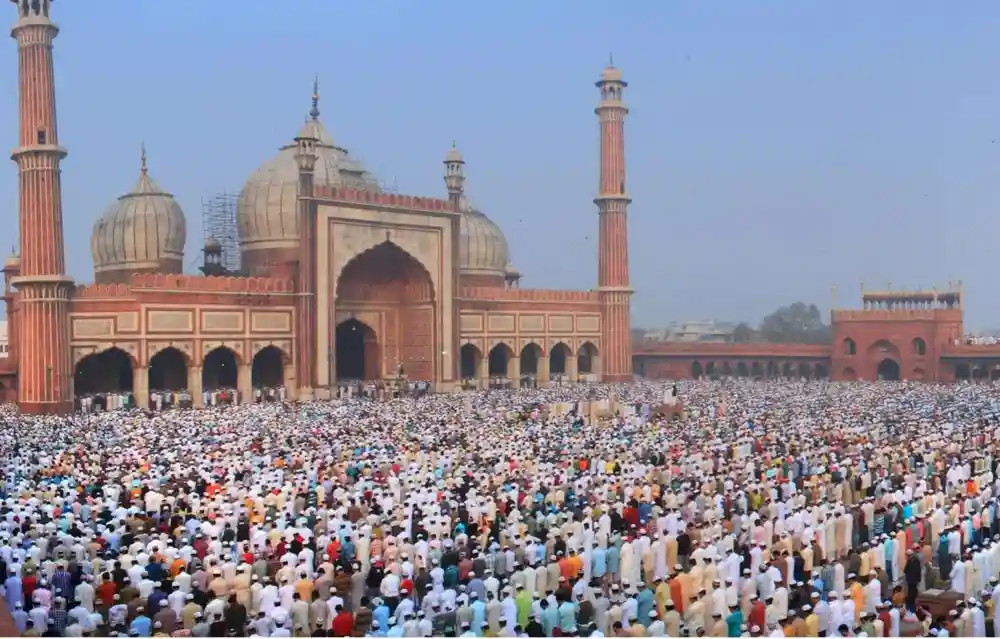 Eid al-Fitr, a significant Islamic holiday marking the completion of Ramadan, is celebrated by Muslims in Sri Lanka. The festival end marks a month of fasting, prayer, and reflection. Muslims go to the mosques and pray early in the morning, wear new clothes, and celebrate the meal with relatives and friends. Another key event of Eid is performing charity and the distribution of Zakat al-Fitr to the poor. The sound, upbeat culture, and the harmony of the festival are displayed perfectly within communities such as Colombo, Beruwala, and Kattankudy.
Eid al-Fitr, a significant Islamic holiday marking the completion of Ramadan, is celebrated by Muslims in Sri Lanka. The festival end marks a month of fasting, prayer, and reflection. Muslims go to the mosques and pray early in the morning, wear new clothes, and celebrate the meal with relatives and friends. Another key event of Eid is performing charity and the distribution of Zakat al-Fitr to the poor. The sound, upbeat culture, and the harmony of the festival are displayed perfectly within communities such as Colombo, Beruwala, and Kattankudy.
8- Poson Festival
 It is one of the most important Buddhist festivals held in Sri Lanka on the full moon day of June every year. It celebrates the arrival of Buddhism into the island in 247 B.C by Arahat Mahinda, who was the son of the Indian Emperor Ashoka. The festival centers on Anuradhapura, where followers meet in huge numbers to attend religious rituals, processions, and pilgrimages. Lighted lanterns and temples with voices of chanting and meditation color the city. Its traditional values of compassion, peace, and spiritual reflection are demonstrated everywhere through acts of charity with free foods and drinks (Dansal).
It is one of the most important Buddhist festivals held in Sri Lanka on the full moon day of June every year. It celebrates the arrival of Buddhism into the island in 247 B.C by Arahat Mahinda, who was the son of the Indian Emperor Ashoka. The festival centers on Anuradhapura, where followers meet in huge numbers to attend religious rituals, processions, and pilgrimages. Lighted lanterns and temples with voices of chanting and meditation color the city. Its traditional values of compassion, peace, and spiritual reflection are demonstrated everywhere through acts of charity with free foods and drinks (Dansal).
Significance of Sri Lankan Festivals
- Cultural diversity: It is inhabited by Sinhalese, Tamils, Muslims, and Burghers who possess different traditions and celebrations.
- Religious importance: The major group of people is dominated by Buddhists (more than 70 percent), followed by Hindus, Muslims, and Christianity.
- Tourism influence: The festival generally falls at peak tourist time, and this gives foreigners a chance to sample traditional music, dance, and rituals.
- Increased Tourism rate: The Sri Lanka Tourism Development Authority revealed that more than 2 million tourists had visited the country in the year 2023 alone, and a very large proportion of them had reportedly traveled in during the peak festival seasons of Vesak and Esala Perahera.
Festival Etiquette in Sri Lanka: What Visitors Should Know
- Book your hotel in advance: Hotel rooms in Sri Lanka fill so quickly during the main festivals, such as Esala Perahera.
- Dress decently: All female tourists are advised to wear decent attire, particularly during their temple visit.
- Be a conscious tourist: Visitors from all around the world are welcome to witness this country, but they must adhere to local practices and traditions.
- Savor Local Delicacies: I strongly suggest travelers to taste the local cuisines, including Kiribath, Kokis, and Puttu.
Final Thought
Visiting Sri Lanka during these unmissable festive seasons offers travelers a varied experience, like observances of the sacred full moon and vibrant cultural parades. Every auspicious occasion offers a glimpse of religious reconciliation as well as the cultural and communal life of the island.
In case you are also planning to spend your holiday in Sri Lanka, then I strongly advise you to plan your vacation during these festivities to make your trip more exciting and enriching.
Suggested to Read



 Call
Call WhatsApp
WhatsApp Enquiry
Enquiry